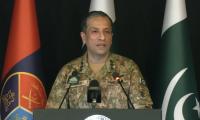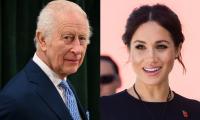ISLAMABAD: The National Coordination Committee (NCC) Thursday decided to substantially ease the lockdown from May 9 after consultations with the provinces and consensus; however, the provinces did not agree on opening the public transport.
Prime Minister Imran Khan, who presided over the meeting, announced this during a news briefing after the committee deliberations.
Imran emphasised that the virus curve was slowly going up but by the Grace of Allah Almighty, the virus wave was not as severe as was witnessed in other countries, especially Europe and the United States.
However, he warned that there was a risk of spike inthe virus cases and none could predict what would be its peak time in one, two or three months.
After through consultations with the provinces up to the chief minister level, the committee decided to open the lockdown in phases, as people, especially small shopkeepers, rickshaw and taxi drivers, daily wagers, labourers and small and medium enterprises, were facing huge difficulties.
He noted that many businesses might face permanent closure, causing more unemployment. "Even while imposing the lockdown in March, my major concern was the weaker segments of the society, daily wagers, labourers and small shop keepers, as our conditions are different from other countries and a very large segment is connected with the informal economy," the premier noted.
Shopping malls, mega stores, restaurants, hotels, marriage halls, cinema halls, automobile manufacturers, inter- intra-city transport, trains will remain shut. Ban on concerts, public rallies, sport events will continue.
Federal Minister for Planning and Development Asad Umar shared with the media details of the six decisions taken with regard to partially lifting the lockdown in phases.
The committee also decided to open all the construction-related industries and shops. Likewise, educational institutions will remain closed now till July 15 and board exams for 9th, 10th, 11th and 12 had been cancelled.
He said all the decisions were taken with consensus among the provinces. He said the construction sector was already open from April 14 and now the related industries and shops were being opened. Besides small markets, shops in neighbourhoods and rural areas would also be opened.
It was agreed with the provinces that the shops would remain open from Fajar time (Sehri) to 5:00pm and remain closed during the nighttime. There was also a proposal, he said, to keep the shops open after Iftari, but it was not entertained.
The minister noted that the shops would remain closed for two days in a week, barring medical stores and outlets of essential goods (food items) to provide break to the law-enforcement agencies personnel, being so crucial for them.
He paid tribute to the law-enforcement agencies for their dedication. Previously, all the out patient departments (OPDs) at hospitals were closed but now selective/designated OPDs would be opened from May 9, and lastly, decisions were taken with consensus also on keeping the educational institutions and board exams.
The minister said the provinces had some reservations about resuming the Pakistan Railways operations. He said the prime minister could impose his decision using his constitutional powers, but he chose not from the very beginning.
He wondered what would a father do, who sold the gold meant for the wedding of his daughter to meet the kitchen expenses due to the lockdown, or the one, who spent money that was meant for admission of his children to an educational institution.
Despite financial limitations, the prime minister, earlier said the government gave a historic relief package but the economic conditions were such that the government could not reach out to every citizen affected by the lockdown.
He said revenue collection and exports had also come down and all the sectors were facing great difficulties. Even restaurants demanded resumption of their activities. He said the government had given a better package.
However, the prime minister said the lockdown was to be opened with prudence and it would be seen how much the nation would be successful.
“We have to collectively discipline ourselves as a nation to save ourselves from the virus as well as earn livelihood for our families. There is a greater responsibility on citizens to strictly follow SOPs and precautionary measures,” he argued.
Germany’s Chancellor Angela Merkel, he noted, had told him that they were easing the lockdown, as their people were disciplined.
The prime minister again said the nation would have to ensure social distancing amid easing of the lockdown, as the government did not believe in ensuring compliance of the precautionary measures through use of force by the police or locking people up.
To wriggle out of this situation, people will have to follow the SOPs as well as the factories and mills, he added.
He said family system in Pakistan was a strength, as one major cause of massive deaths in Europe was that the old people there lived in old homes and infected people spread it fast there, whereas here in Pakistan, the family system could be handy in prevention of spread of the virus.
“However, this family system can be a risk as well if precautionary measures are not followed properly,” he warned. The prime minister said he was in favour of opening of public transport, which was the means of movement mostly for low-income groups and if it remained suspended, then how would they move out for earning livelihood.
He called for holding consultations afresh with the provinces in the National Command and Control Centre. Talking about the 1,25,000 Pakistanis stranded abroad, he said if they were to be brought back, they would have to remain in self-quarantine for lack of facilities and the federal government would talk to the provinces in this connection.
Ministry for Industries Hammad Azhar said the essential services industry was opened earlier as well as construction industry and now from Saturday related industries like the shops of PVC pipes and factories, paint production and shops, tile shops and production, electrical production and hardware shops were being opened.
He explained that shops in community areas and rural localities were also being opened. Minister for National Education Shafqat Mehmood said as per the directions of prime minister for caring for the safety and health of students, all the board examinations had been cancelled and the students would be promoted to the next class and they could get admission in colleges and universities on the basis of their previous result.
For example, he said, a student could now get admission in a university on the basis of his previous class result.
Prime Minister's Focal Person on COVID-19 Dr Faisal Sultan said undoubtedly, tally of corona cases had gone up in the country, which had put some pressure on the country’s health system, but it had the capacity to handle the situation. “We have not yet reached a saturated point. People are supposed to observe social distancing and SOPs recommended by the government to contain the pandemic. The most important key with regard to containing the virus lies in the hands of citizens and if they show little care for the SOPs, then the country can witness a spike,” he warned.
He noted that the virus trajectory as compared to many countries had been low enabling the country to bring about improvement in the health system and enhancing capacity. He said in US alone, there had been more deaths than recorded during their Vietnam War. He said Pakistan had been lucky so far but this did not mean the issue was over.
Prime Minister's Special Assistant on National Security Division Moeed Yusuf said all the stranded Pakistanis would be brought back adding that 20,000 overseas Pakistanis had been brought back so far from various countries. He said 40,000 stranded Pakistanis would fly back from 32 countries next week and another 7,500 would be brought back every week.
Opposition leader Omar Ayub joined JIT probe, sources said on Thursday
Residents said gas supply to some areas, including Rustam Town has been suspended
Heavy firing reported between law enforcement agencies and dacoits
District Bar Association Khairpur suspended court proceedings and demanded arrest of culprits
Both Airtel and Jio deals are conditional upon Starlink obtaining govt approval to begin operations in country
Article 8 of Constitution allows exemption from fundamental rights







